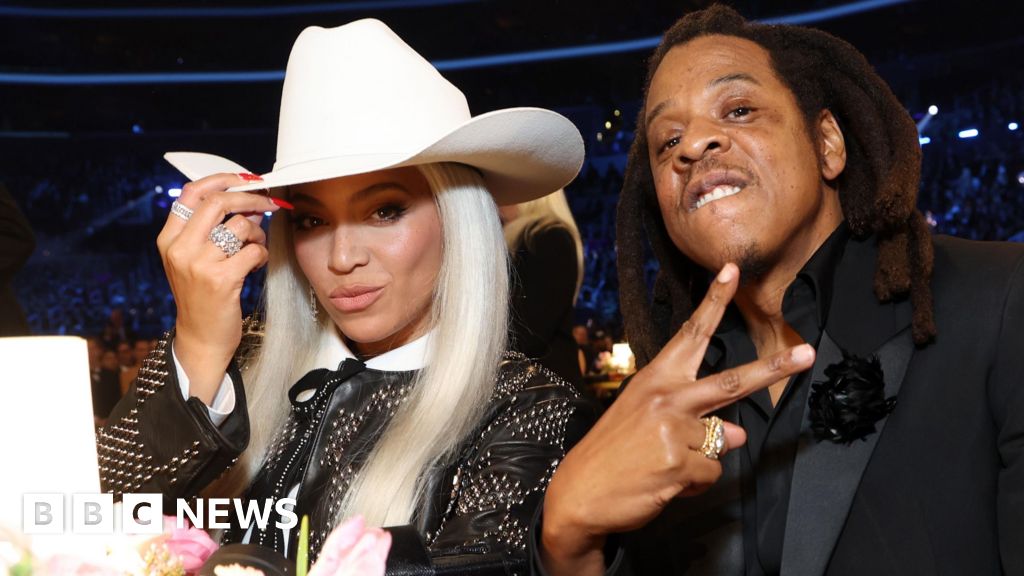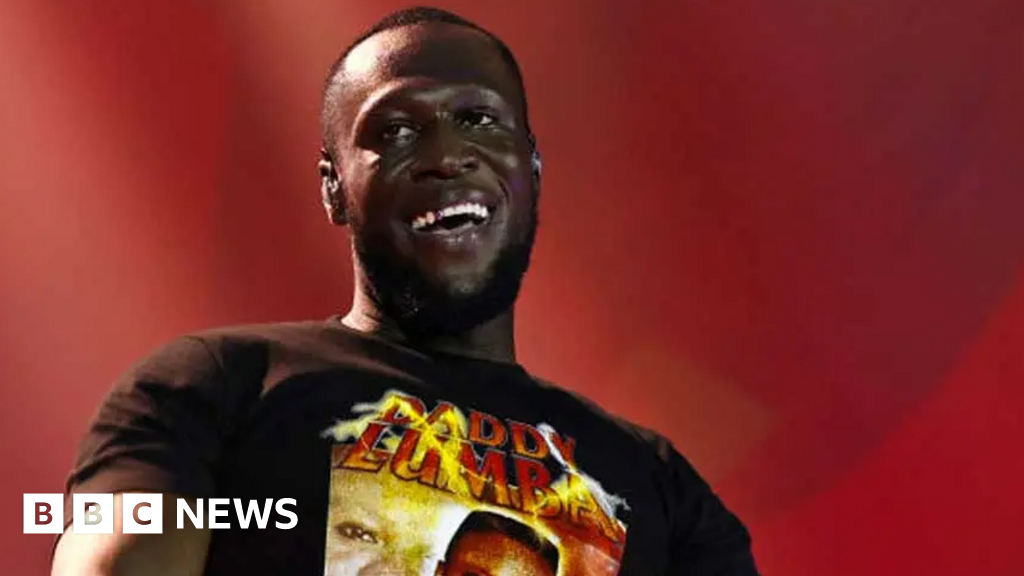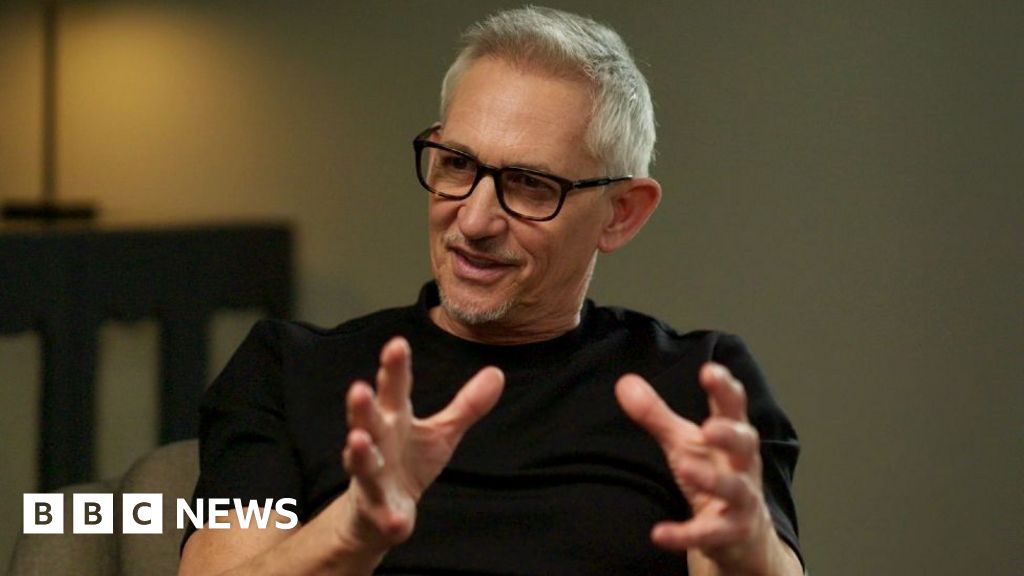ARTICLE AD BOX

The second season of The Traitors, hosted by Claudia Winkleman, has attracted audiences of more than six million
By David Sillito
Media and arts correspondent
Viewers are gearing up for the finale of the Traitors, following a hugely successful second series.
Fans will find out whether the faithful will choose to end the game and attempt to win the prize money, or if a traitor will swoop in having gone undetected.
The reality series has been a huge hit for the BBC once again, with several episodes reaching an audience of more than six million, including catch-up.
The 70-minute finale airs on BBC One from 21:00 GMT on Friday.
This article does not contain spoilers from this week's episodes.
The Traitors is a British adaptation of a Dutch format which has also been exported to the US and Australia.
The UK version, hosted by Claudia Winkleman, is an undisputed hit - something which is a rarity for a new broadcast format. Ratings juggernauts such as Strictly Come Dancing, I'm a Celebrity and The Great British Bake Off are all between 12 and 21 years old.
However, it is also an example of how TV is changing.
How reality has gone big
The UK and US versions are produced by Studio Lambert, a company that made its name with shows such as Undercover Boss and Naked Attraction.
But the head of the company, Stephen Lambert, made a decision that the future was not in mid-range schedule-filling TV shows. They had to go big.
"I think the broadcasters and the streamers are realising that the middle isn't how you attract an audience in this highly competitive market," he says.
"You have to have some big pieces, and those big pieces are expensive, but they will bring an audience in and they will get people talking."
"[The broadcasters] have decided, let's see what happens if we spend that kind of money on a high-budget reality show. Maybe it will have the same kind of appeal as a high-budget drama."
Image source, Pete Dadds/Netflix
Image caption,Studio Lambert also produces Squid Game - The Challenge, a spin-off from the successful drama series
This is reality TV with the budget and attention to detail that you normally only find in high-end drama.
Studio Lambert also makes Gogglebox, Race Across The World and Netflix's Squid Game - The Challenge which has 456 competitors. And while The Traitors is not quite so huge, it is still a big production.
Executive producer Mike Cotton, who oversees a crew of more than 200 people on The Traitors' set, says: "It sounds crazy and absolutely huge but we film one episode a day.
"That team consists of... the producers, the camera operators, the caterers, the art department, the editors, the people that are driving the cast around in the jeeps to their various different locations. It's a huge team."
Setting the mood
Cotton says the programme only works if the contestants are totally immersed in the gothic murder mystery atmosphere.
At the roundtable where the faithful decide who to banish, there are dozens of cameras hidden inside the walls, table and central console.
The mood is heightened by playing the haunting song The Hanging Tree from The Hunger Games. All the log fires are lit to create a sense of cosy mystery, so too are the torches outside the castle to add to the drama.
No chatting in loos
Paul and Andrew are among the contestants on the latest series of The Traitors
A team of runners and drivers are employed to ensure contestants cannot speak to one another off camera.
Everyone is taken back individually to their hotel room and spends the night alone. Phones are banned and there is no internet access.
In the castle, the only place free of cameras is the toilets and people have to visit the bathroom on their own. Microphones are turned on as soon they arrive in the castle and recording only stops when they leave in the evening.
Total secrecy is also demanded. Ash Bibi, one of the Traitors in series two, kept it secret from everyone apart from her boss who signed off her leave. Her mother only learnt of her participation on the day of the programme launch.
After her banishment, she is in the dark as much as the rest of us about how the series ends.
Water-cooler TV
To understand why a show is given so much polish, you have to look at what is happening to broadcast television.
Around 65% of viewing is still of live TV, but the days of reaching a big audience by just filling a time slot are long gone.
Studio Lambert also produces Race Across The World and its celebrity spin-off
GroupM, who are one of the biggest buyers of TV advertising slots, says the television industry is being pushed to make shows that create noise.
Chief operating officer Luke Bozeat says broadcast TV still has a unique power to create national attention but it means the broadcasters have to concentrate on a smaller number of prestige shows.
"Look at the impact of Mr Bates vs. the Post Office and I'm a Celebrity," he says.
"It's that moment when you say 'did you see' who went out of The Traitors.
"Broadcast can drive the cultural conversation, the water cooler moments, content that captivates the imagination and gets people talking and the Traitors is a perfect example of that."
The disappearing middle
Traditional TV is not just competing with Netflix and the rest of the streamers, but also Instagram, YouTube, TikTok and video games.
But betting big means it's tough for shows that struggle to get the big numbers. The "middle" that Studio Lambert has moved away from is a reminder of how schedules have narrowed
Whole genres have almost disappeared. If you look back at the BBC schedule of January two decades ago, it features the Holiday Programme, Top of the Pops, three comedy panel shows, four sitcoms, clip shows and standalone plays.
The BBC is given strict targets to produce a certain range of output, but it is clear a wide selection of programming across the TV landscape is struggling.
Comedy, which was once a mainstay of the schedules, attracting some of the biggest audiences in TV history has been declared by the broadcast regulator, Ofcom, to be "at risk", so too are arts, children's, music, religion, ethics and specialist factual.
The Traitors is a good reminder that traditional broadcast TV is far from dead and has an extraordinary power to drive the national conversation. But the gap between prestige TV and the rest of the schedule is only going to grow.

 1 year ago
112
1 year ago
112








 English (US) ·
English (US) ·